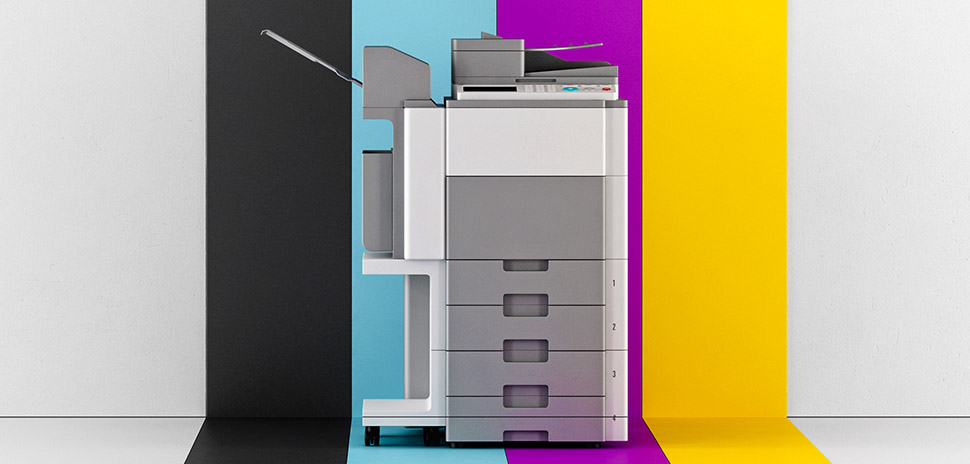When a pandemic takes away face-to-face interaction, selling a product or service requires a major shift in sales strategy.
For Southwest Office Systems, a small business that sells and services multi-functional printing and document management office equipment, the shuttering of corporate offices meant dramatic revenue declines. But the company’s measured redirection is already showing signs of getting Southwest back on stable footing.
“In our 56-year history, and the many recessions we have been through, we have never experienced that sudden of a drop or dramatic drop in revenue,” said Vince Puente, President of Sales and Marketing for Southwest, at a July 15 U.S. Chamber of Commerce panel of small business owners. “So, it is a new world, and it has been an amazing change, but we are working our way through it.”
In April, Southwest lost 42% of revenue compared to the previous year, followed by a 37% loss in May. Puente shared strategies, tactics, and ideas for restarting and pivoting sales initiatives during the pandemic.
Southwest receives a fraction of a cent every time a document is printed in an office. When offices are closed, printing drastically declines, and servicing in-office printing equipment is not possible. Fifty percent of Southwest’s revenues are sales, and the other profitable 50% of the business comes from service revenues, including prints.
“What has been hit very hard, very dramatically, is our service revenue. Prints are dramatically down, therefore our revenues are dramatically down,” Puente said. “If clients are not in their offices, then they are not printing. They may be printing at home, but if those devices are not on their network, then we don’t have access to monitor them and bring the level of services that we do.”
Despite an economic shutdown that has kept many offices shuttered and employees working from home since March, Southwest kept its sales team employed by changing its entire B2B sales approach. The company got creative with contract terms and offered product flexibility to support its clients.
The sales team focused engagement with clients via phone, email, or written notes to let them know Southwest was still fully operational and ready to be helpful in the new virtual world of business. Monthly sales incentives stayed intact by creating new offers for the sales team to generate and close business.
“If [a sales rep] could find a net new client, we provided them with our special reduction in prices and incentivized the rep,” Puente said. “We created very unique leasing programs. It is a 0%, 36-month lease with the first payment delayed for 90 days. The combination of those things has not been done before.”
Southwest also provided free printers for home offices, and $50-$500 gift cards to local restaurants to thank clients for doing business them and invest into other small businesses in the local economy.
“With the multiple layers of incentives, there is no margin and most likely there is actually a loss in the transaction,” Puente said. “But our objective right now is not margin or profit, our primary objective is engaging our team and clients, which generates activity and is very important for us to stay alive.”
Southwest also redirected advertising dollars to its sales initiatives. It felt now was the time to invest in clients who were still operating as opposed to advertising.
“Our advertising has always been geared toward name recognition, local ownership, and superior service, but I can take that money and back up these sales, and that has an impact on our clients and teammates,” he said. “Ultimately, what it is about is the clients, the teammates, and driving activity. Keeping our team active, keeping jobs solid, and helping our clients out.”
The key to a small business sales strategy during the pandemic is understanding your company’s products and services, and how to apply them in the new business environment, he said. Starting with a C-level executive who can introduce a decision-maker to a product or services is still the best avenue for relationship building and selling.
Relationships are the heart of small businesses such as Southwest. The company boasts client relationships that are 25-30 years old, 56% of employees have been with the company for 10 or more years, and about one-third of employees for 15-20 years or longer, Puente said.
“Our sales and our company growth are built on relationships, and our goal was to have an exchange with [clients] about business, or their family and how they were doing,” he said. “We relate to them on a personal and business level.”
A version of this story first appeared on the Dallas Regional Chamber site. Dallas Innovates is a collaboration of D Magazine Partners and the Dallas Regional Chamber.
![]()
Get on the list.
Dallas Innovates, every day.
Sign up to keep your eye on what’s new and next in Dallas-Fort Worth, every day.


































































